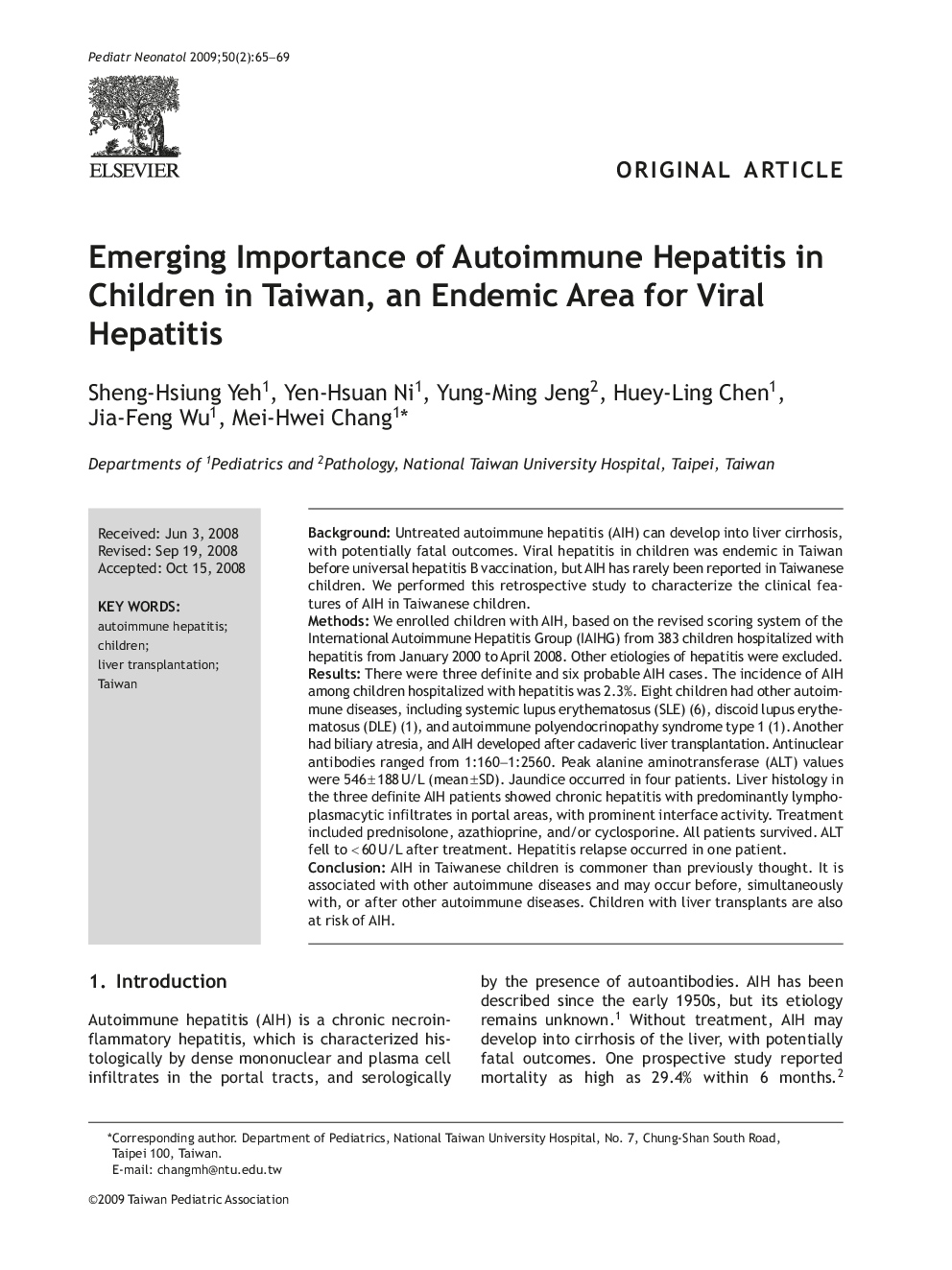| Article ID | Journal | Published Year | Pages | File Type |
|---|---|---|---|---|
| 4175608 | Pediatrics & Neonatology | 2009 | 5 Pages |
BackgroundUntreated autoimmune hepatitis (AIH) can develop into liver cirrhosis, with potentially fatal outcomes. Viral hepatitis in children was endemic in Taiwan before universal hepatitis B vaccination, but AIH has rarely been reported in Taiwanese children. We performed this retrospective study to characterize the clinical features of AIH in Taiwanese children.MethodsWe enrolled children with AIH, based on the revised scoring system of the International Autoimmune Hepatitis Group (IAIHG) from 383 children hospitalized with hepatitis from January 2000 to April 2008. Other etiologies of hepatitis were excluded.ResultsThere were three definite and six probable AIH cases. The incidence of AIH among children hospitalized with hepatitis was 2.3%. Eight children had other autoimmune diseases, including systemic lupus erythematosus (SLE) (6), discoid lupus erythematosus (DLE) (1), and autoimmune polyendocrinopathy syndrome type 1 (1). Another had biliary atresia, and AIH developed after cadaveric liver transplantation. Antinuclear antibodies ranged from 1:160-1:2560. Peak alanine aminotransferase (ALT) values were 546 ± 188 U/L (mean ± SD). Jaundice occurred in four patients. Liver histology in the three definite AIH patients showed chronic hepatitis with predominantly lymphoplasmacytic infiltrates in portal areas, with prominent interface activity. Treatment included prednisolone, azathioprine, and/or cyclosporine. All patients survived. ALT fell to < 60 U/L after treatment. Hepatitis relapse occurred in one patient.ConclusionAIH in Taiwanese children is commoner than previously thought. It is associated with other autoimmune diseases and may occur before, simultaneously with, or after other autoimmune diseases. Children with liver transplants are also at risk of AIH.
